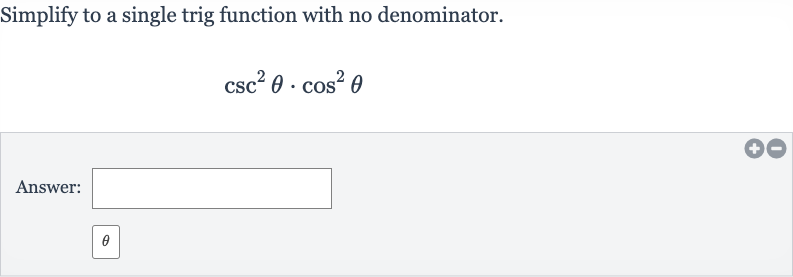Full solution
Q. Simplify to a single trig function with no denominator.Answer:
- Recall definition of cosecant function: Recall the definition of the cosecant function. The cosecant function is the reciprocal of the sine function, so .
- Rewrite : Rewrite as . Using the definition from Step , we can rewrite as .
- Apply power to the fraction: Apply the power to the fraction.When we raise a fraction to a power, we raise both the numerator and the denominator to that power. So, becomes , which simplifies to .
- Multiply the expressions: Multiply the expressions.Now we multiply by . This gives us .
- Use Pythagorean identity: Use the Pythagorean identity for sine and cosine.The Pythagorean identity states that . We can rearrange this to express in terms of : .
- Substitute : Substitute in the expression.Substitute with in the expression from Step . This gives us .
- Simplify the expression: Simplify the expression.Since we have a common factor of in the numerator and the denominator, we can simplify the expression to just . This is because .
More problems from Product property of logarithms
QuestionGet tutor help
QuestionGet tutor help
QuestionGet tutor help
QuestionGet tutor help
QuestionGet tutor help

